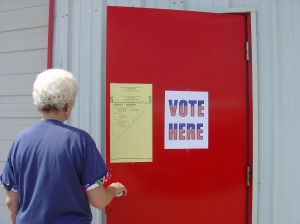In the United States, the Americans with Disabilities Act works to protect the disabled from discrimination while the Social Security Disability system aims to ensure that disabled individuals have enough money to meet their basic living expenses, even when they can no longer work as a result of a medical condition or impairment. 
Unfortunately, the Supplemental Security Income (SSI) trust fund could run out of money within the next few years. In recent months, politicians and the media have also been targeting the Social Security Disability system, making accusations that the system is rife with fraud and that changes need to be made. Some politicians have also suggested changing the way that cost-of-living increases are applied to Social Security benefits, which would effectively cut income to many people who receive monthly Social Security disability benefits.
Allegations of fraud in the Social Security disability system likely seem ridiculous to people who have navigated through the difficult process of applying for SSD benefits. Our Boston Social Security Disability lawyers know that well over half of all individuals who apply for SSD benefits are denied. Yet, these accusations continue to be made and politicians continue to propose suggestions to “fix” the entitlement and debt crisis in the U.S. by reforming the Social Security System. The disabled who receive benefits through this system are likely an afterthought to those in power, especially as recent evidence indicates that the disabled may exercise so little political clout that they have trouble even voting.
Voting Challenges Plague the Disabled
According to the Disability Scoop, almost 40 percent of voters with disabilities indicated that their polling place where they had to go to cast their votes was not handicapped accessible. Almost half of disabled voters said that the technology associated with voting was problematic. A member of the National Council on Disability also expressed concern that while nearly one in five Americans are disabled, around 70 percent of all polling places in the country are still not handicapped accessible.
Congress took steps in 2002 to stop this discrimination against disabled voters and to make sure everyone had a voice. The Help Americans Vote Act was passed at that time and was designed to make it easier for the disabled to vote by granting those who are disabled the right to vote “independently and privately” for the first time.
Yet, nearly a decade has passed and there are physical, legal and attitudinal barriers that exist and that, in the 2012 election, caused a group of nearly 900 disabled individuals surveyed to face serious difficulties casting a ballot. One of five disabled voters during this election said that they encountered problems such as condescending attitudes of election workers, in addition to other barriers like a lack of access ramps.
Unfortunately, as long as the disabled face difficulties voting, their interests will never be adequately represented among the political class. This is likely why it remains so difficult for the disabled to get access to the benefits they need from the SSA even when they have clearly worked and paid into the disability system and even when they are clearly impaired and in need of help from the social safety net.
If you are considering filing for SSDI in Boston, call for a free and confidential appointment at (617) 777-7777.
More Blog Entries:
Disability Risk Increases With Age, Boston Social Security Disability Lawyer Blog, July 20, 2013
 Massachusetts Social Security Disability Lawyers Blog
Massachusetts Social Security Disability Lawyers Blog

